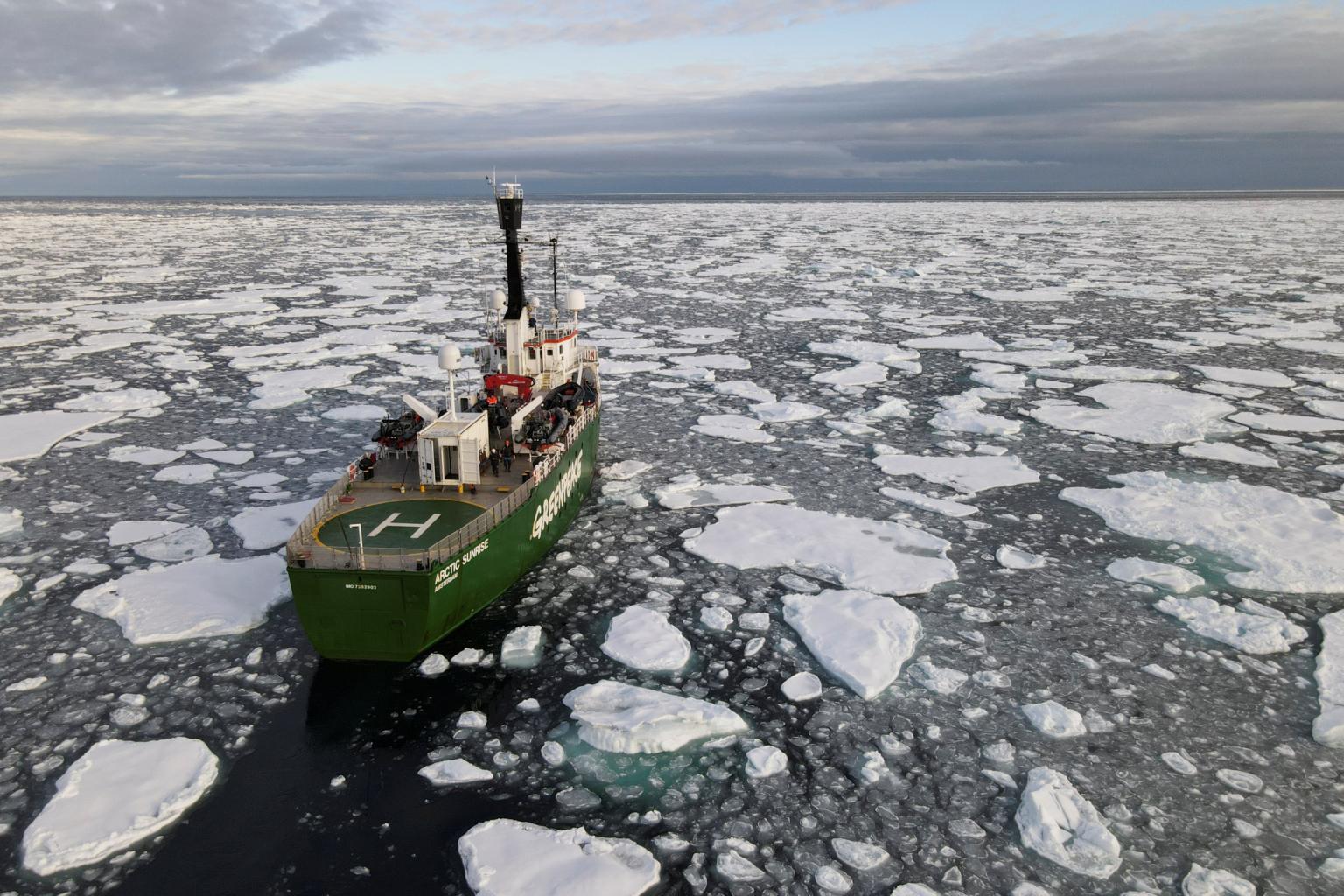Russia pushes Arctic ambitions after Suez jam
Sign up now: Get ST's newsletters delivered to your inbox

The Northern Sea Route is one of several Arctic shipping channels and lies within Russia's exclusive economic zone.
PHOTO: REUTERS
Follow topic:
MOSCOW (AFP) - Russia has seized on the Suez Canal blockage to promote its northern shipping route as a reliable alternative, part of a broader push by Moscow to develop the Arctic and capitalise on climate change.
President Vladimir Putin has made Russia's Arctic region a strategic priority and ordered investment in military infrastructure and mineral extraction.
The development of the Northern Sea Route is closely linked to that push and Moscow has channelled large sums into a fleet of icebreakers and ice-class tankers.
Russia redoubled efforts to promote the Arctic route after a giant Japanese-owned tanker became wedged this week in the narrow Suez channel barring some 200 ships passage.
A senior Russian diplomat said on Friday (March 26) that the jam underscored the importance of developing the Arctic route.
"The appeal of the Northern Sea Route will grow both in the short- and long-term. It has no alternative," said Nikolai Korchunov, Moscow's point person for international Arctic cooperation.
"Obviously it's necessary to think about how to efficiently manage transportation risks and develop alternative routes to the Suez Canal, first and foremost the Northern Sea Route," Korchunov, Russia's ambassador-at-large, told the Interfax news agency.
The Northern Sea Route is one of several Arctic shipping channels and lies within Russia's exclusive economic zone.
Russia has invested heavily to develop the route, which allows ships to cut the journey to Asian ports by 15 days compared with using the Suez Canal.
Transit of the eastern Arctic usually ends in November but Russia hopes climate change means the commercial benefit of the route will increase.
Moscow is planning to use the route to export oil and gas to overseas markets while companies including Russia's biggest LNG producer Novatek already navigate the northern route.
In August 2017, the first vessel travelled along the Northern Sea Route without the use of ice breakers.
'Surprising? No'
Russia's weather monitor said this week that the northern route was "in some years almost completely free of ice" towards the end of the summer and in 2020 reached a "record low level" of ice cover.
The Japanese-owned, Panama-flagged MV Ever Given became stuck in the Suez Canal during a sandstorm, blocking the waterway that connects the Mediterranean with the Red Sea and which handles more than 10 percent of global maritime trade.
Tugboats and dredgers scrambled Friday to free the giant container for a fourth day, forcing companies to re-route services from the vital shipping lane around Africa.
Russia's nuclear agency, which is the Arctic passage's official infrastructure operator, mockingly offered its northern route as an alternative on Thursday, saying icebreakers would be sent to the rescue if vessels get stuck.
Nuclear agency Rosatom jokingly said the Arctic passage provides "more space to draw peculiar pictures using your giant ships," referring to shipping trackers which showed that the Ever Given traced the outline of a giant penis before getting stuck.
"#Russia will use the #EVERGIVEN case to attract shipowners to the Arctic," tweeted Arctic expert Mikaa Mered. "Is this surprising? No."
Putin on Friday praised Russian navy's Arctic exercises that launched last week, saying the troops had proven their ability to operate even "in harsh northern environments".
As part of the drill, three nuclear-powered submarines broke the ice and surfaced simultaneously while a nuclear submarine also fired a torpedo from beneath the ice.

